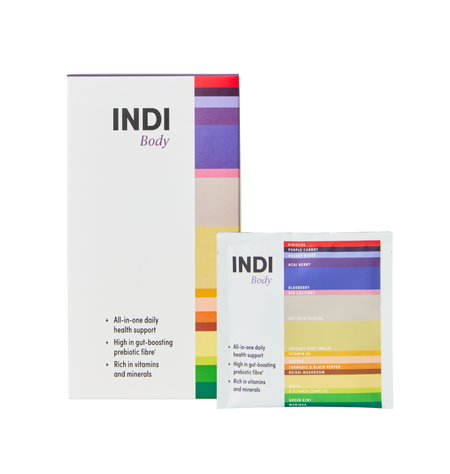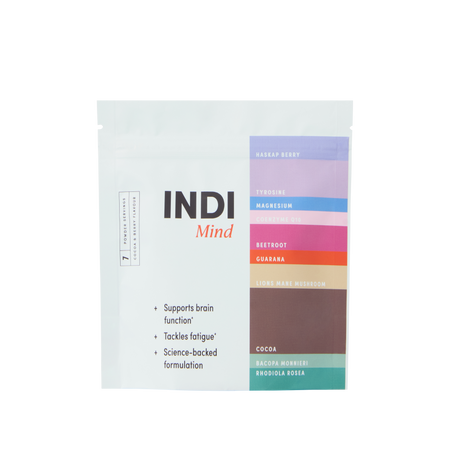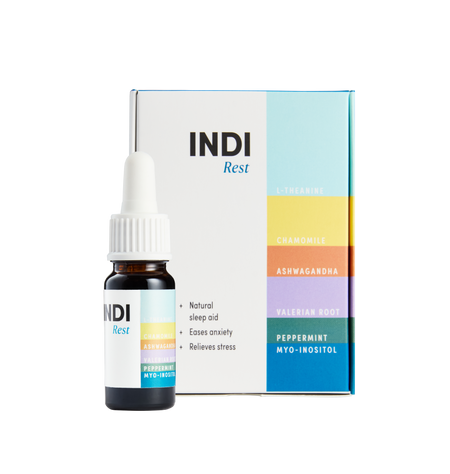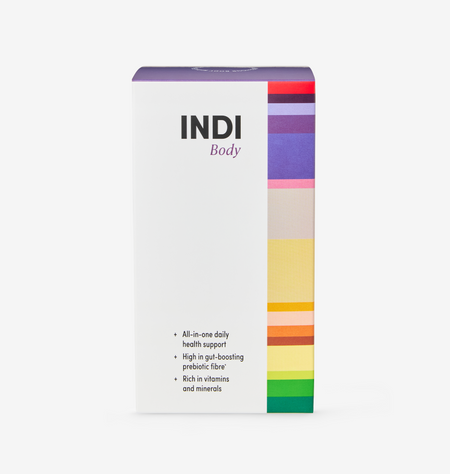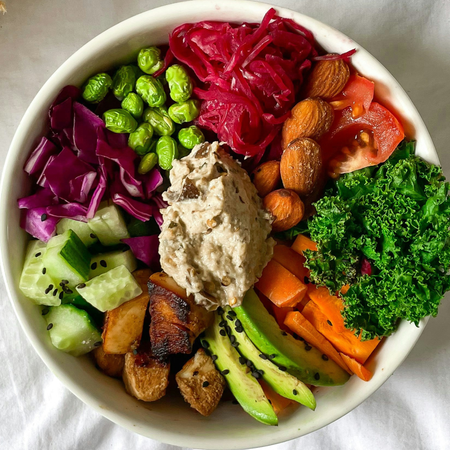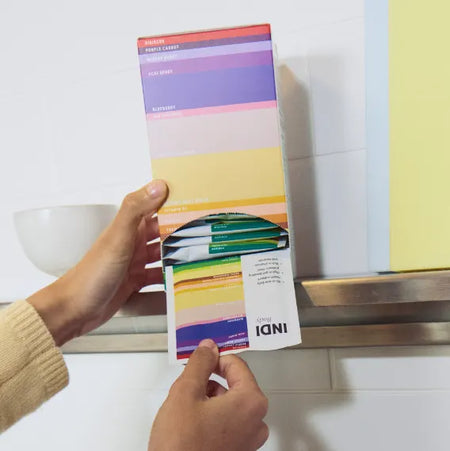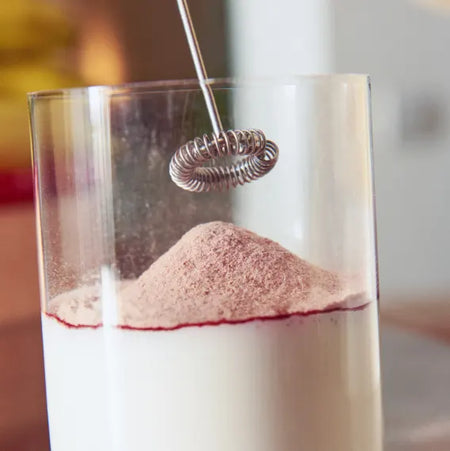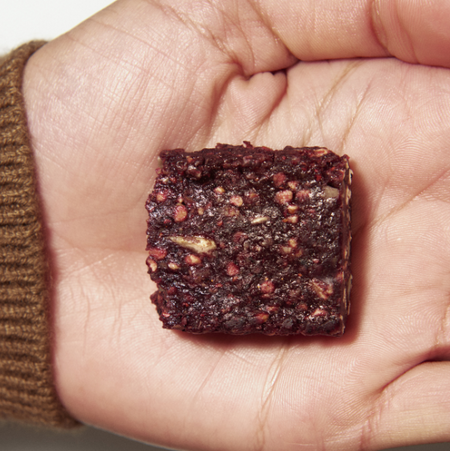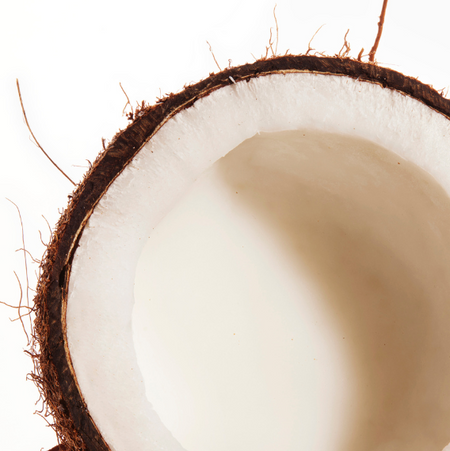Too many of us put up with endometriosis symptoms for too long before and after diagnosis—here’s what you can do about it.
When I was a teenager, a throwaway comment from my GP internalised some of the most unhelpful limiting beliefs about my health and my body that have taken years to shift: “Some women just suffer with painful periods, you need to take more painkillers”. I thought “I must be weaker than other people. No one else is floored by their period pain like I am. I’ll never head up a company. What if I pass out in the middle of a presentation?”.
Fourteen years after experiencing my first obvious symptoms of endometriosis (throwing up, fainting and debilitating period pain), I finally received a diagnosis at age 30. Part of me felt so relieved—I knew that there is something going on in my body, I wasn’t making it up all this time. What now?
Endometriosis is a condition where tissue that is similar to the cells lining the womb grows in other places in the body, most frequently around the pelvic organs but tissue has been found on the lungs, the eye and in one case, the brain. These cells are impacted by the hormonal fluctuations during the menstrual cycle and can contribute to the formation of lesions, scar tissue and adhesions that in some cases, can fuse organs to other structures in the body. The condition presents differently in everyone affected by it but some of the most common symptoms include:
- Chronic pelvic pain - either linked to period or throughout the month
- Digestive issues - often misdiagnosed as IBS, unpredictable bowel movements, multiple food sensitivities and significant bloating
- Bladder sensitivity or pain
- Fatigue
- Depression
- Fertility complications
Even though awareness of this condition has skyrocketed since I received my diagnosis 6 years ago, the bar was initially very low and still about a third of the people I speak to haven’t heard of the condition. In the UK, the average diagnosis time is currently 8 years from first reporting your symptoms to a GP. A significant factor here is that the gold standard of diagnosis is still a surgical procedure that has to be performed under general anaesthetic.
Often when I ask a client whether they have had It ruled out medically I’ll hear “Oh I did wonder if that is what’s going on but surely a doctor would have told me by now?”. There is a subset of expert gynaecologists and their teams who can accurately read scans and detect even superficial endometrial lesions, however, there are a lot of people who have been erroneously told that they don’t have the condition based solely on an ultrasound, which isn’t technically enough to rule out the condition.
This challenge of “What now?” once a diagnosis is confirmed or when deciding whether to have a laparoscopy to confirm the presence of endometriosis is by no means a singular experience. This is what I hear all the time on the initial call I have with people trying to understand what’s going on for them. If the only options you are presented with are hormonal birth control, surgery or “mini” menopause and you don’t like the sound of any of them, then indeed, what now?
Well, when we consider endometriosis from a nutritional therapy perspective, we can think about all the body systems that we need to support and what is contributing to the worsening of symptoms. Three key things to focus on are managing our stress response, managing inflammation, and managing oestrogen levels and metabolism.
STRESS RESPONSE
Getting a diagnosis is often psychologically stressful, especially if we’ve been made to feel as though we’re exaggerating, wasting a doctor’s time or have had to jump through hoops for years. There can be a tendency to put pressure on ourselves to achieve everything that someone without a chronic health condition does. In addition, those suffering with chronic pain experience this as a stressor for the body as often cortisol is released in an attempt to lessen the pain. Putting steps in place to prioritise our rest and digest parasympathetic response is one of the most important things to establish, but this is the one that tends to be the most challenging for the majority of clients—and myself.
IMMUNE RESPONSE
Endometriosis is an inflammatory condition which could also be why we often see mood symptoms like depression which is linked to higher presence of inflammatory markers in the body. In addition, there is an element of immune dysfunction. Usually tissue that’s growing where it shouldn’t be is identified by the immune system and broken down, whereas in endometriosis, those cells similar to the uterine lining growing elsewhere aren’t addressed by the immune system. We can seek to support inflammation in the body through following an anti-inflammatory protocol that is rich in immune nutrients, as well as supporting a healthy microbiome that supports the immune response in the body rather than one that is contributing to higher levels of inflammation.
OESTROGEN
Levels We know that the condition is worsened by high oestrogen states and there could be a tendency for the body to favour more problematic oestrogen metabolites.
There could be several things feeding into the high oestrogen levels that we can influence. One is that we can be more mindful of our exposure to oestrogen mimicking chemicals in the environment or EDCs (endocrine disrupting chemicals). Another consideration here is our gut and whether we are having regular bowel movements. Individuals who suffer with constipation are more likely to experience the reabsorption and recirculation of oestrogen in the body. In addition, we can consider the microbiome and whether there is a higher presence of bacteria that encourage oestrogen recirculation in the body. Finally, we can look to support the liver and how we process oestrogen, in order to encourage the healthy breakdown of oestrogen and experience lower levels of the problematic oestrogen metabolites.
"In short, there is so much that we can do through lifestyle modifications that can help to improve our symptoms. The medical interventions absolutely have a place—often we need them to guarantee quality of life—but there are a lot of practitioners out there who can work alongside your medical team to help you to prioritise the choices that will have the most impact for you to improve your symptoms."
With thanks to Marjolein Dutry Van Haeften
Marjolein Dutry van Haeften is a registered nutritionist and nutritional therapist who specialises in gut and hormonal health. Marjolein has supported 100s of clients through her brand Hormoniously, which offers bespoke nutrition and lifestyle programmes through comprehensive laboratory testing and a holistic approach to health and the body.
